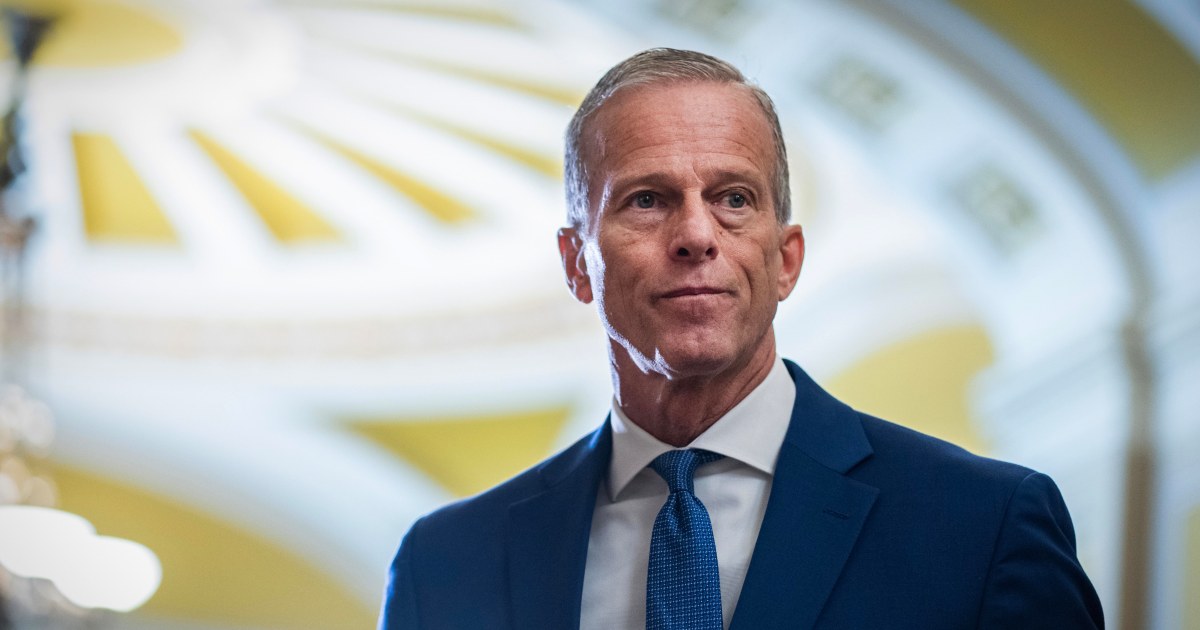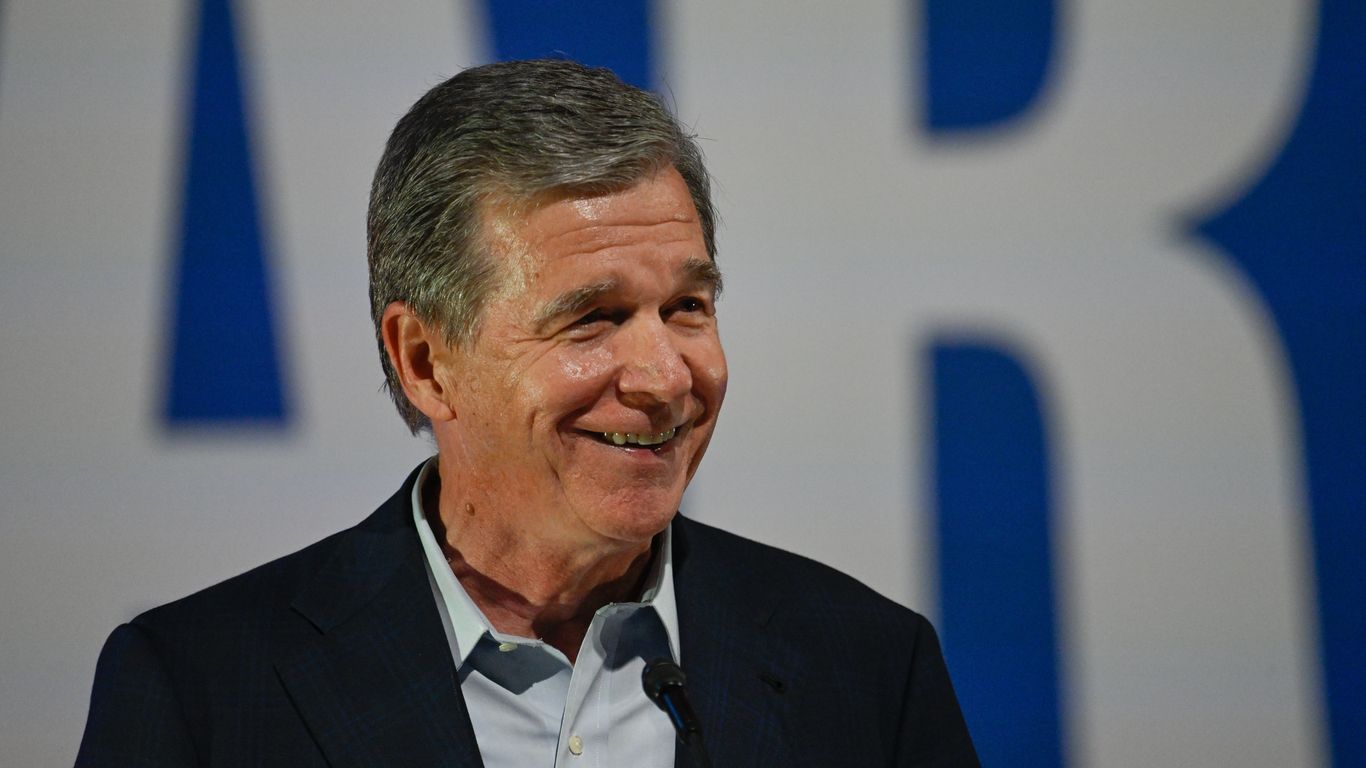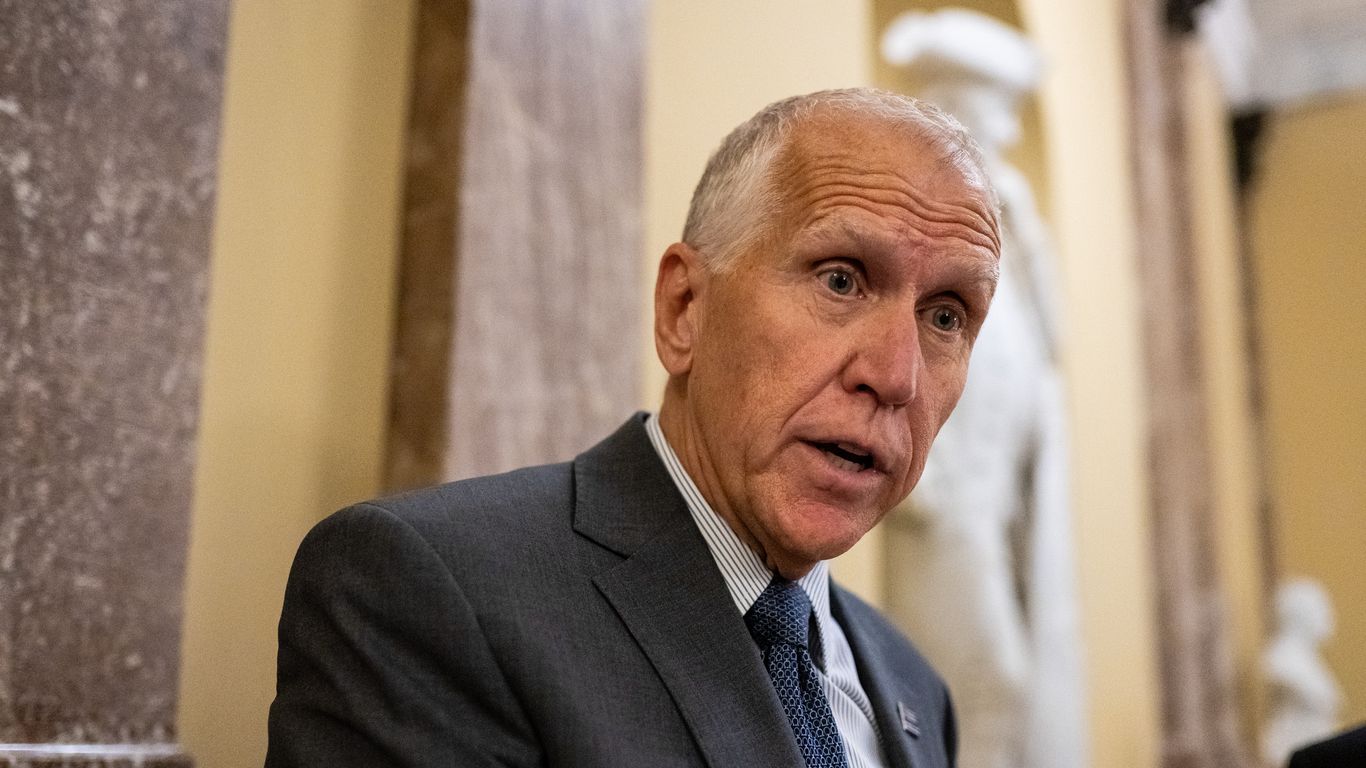Trump-Backed RNC Chair Michael Whatley Announces Senate Campaign in North Carolina
Introduction
RNC chair Michael Whatley has announced his candidacy for the Senate in North Carolina, with the support of former President Trump. This comes after Trump's daughter-in-law, Lara Trump, decided not to run for the seat herself. Whatley's decision to run for Senate has been met with enthusiasm from the Republican party and Trump supporters, who see him as a strong ally and candidate to continue the "Make America Great Again" agenda.
Key Details
Whatley's decision to run for Senate in North Carolina is a strategic move by the Republican party. The state is considered a key battleground for the 2022 midterm elections, and having Trump's support will give Whatley a strong advantage. Whatley has been a vocal supporter of Trump's policies and has been a key player in the RNC's efforts to secure victories for the party. This makes him a highly qualified candidate for the Senate seat.
The decision by Lara Trump not to seek the seat has also raised questions about her future political aspirations. Some speculate that she may be considering a run for the North Carolina governorship in 2024. However, her decision not to run for Senate has been met with support from her family and the Republican party.
Impact
Whatley's candidacy for Senate with Trump's backing has the potential to strengthen the Republican party's hold on North
About the People Mentioned
Donald Trump
Donald John Trump, born June 14, 1946, in Queens, New York, is an American businessman, media personality, and politician. He graduated from the University of Pennsylvania’s Wharton School in 1968 with a degree in economics. In 1971, he took over his family’s real estate business, renaming it the Trump Organization, through which he expanded into building and managing skyscrapers, hotels, casinos, and golf courses. Trump gained widespread fame as the host of the reality TV show *The Apprentice* from 2004 to 2015, which helped establish his public persona as a successful entrepreneur. Trump entered politics as a Republican and was elected the 45th president of the United States, serving from 2017 to 2021. His presidency was marked by significant policy actions including tax cuts, deregulation, the appointment of three Supreme Court justices, renegotiation of trade agreements (notably replacing NAFTA with the USMCA), and a focus on immigration control including border wall expansion. He withdrew the U.S. from international agreements such as the Paris Climate Accord and the Iran nuclear deal, and engaged in a trade war with China. His administration’s response to the COVID-19 pandemic was criticized for downplaying the virus’s severity. Trump was impeached twice by the House of Representatives—first in 2019 for abuse of power and obstruction, and again in 2021 for incitement of insurrection—but was acquitted by the Senate both times. After losing the 2020 election to Joe Biden, Trump challenged the results, culminating in the January 6, 2021, Capitol riot. He remains a central figure in American politics, having won the 2024 presidential election and returned as the 47th president in 2025, continuing to promote policies aimed at economic growth, border security, and military strength[1][2][3][4].
Lara Trump
Lara Trump, born Lara Lea Yunaska on October 12, 1982, is an American television producer and political strategist. She is married to Eric Trump, the third child of former U.S. President Donald Trump. Lara's educational background includes a degree in communications from North Carolina State University, which she completed in 2005[2][4]. Following her graduation, she also pursued culinary studies, reflecting her diverse interests in both media and culinary arts[4]. Lara Trump began her career in television as a story coordinator and producer for the syndicated news-magazine show *Inside Edition* from 2012 to 2016[4][6]. She transitioned into politics during Donald Trump's 2016 presidential campaign, serving as a digital consultant and fundraiser[4]. Her involvement in the Trump family's political endeavors continued, and she became a regular contributor on Fox News[2][4]. In 2021, she started hosting her own show, *My View with Lara Trump*, further solidifying her presence in media[4]. In March 2024, Lara Trump was elected as the co-chair of the Republican National Committee alongside Michael Whatley, marking a significant step in her political career[2][4]. However, her tenure in this role was relatively short-lived, ending in December 2024[5]. Lara has been a prominent figure in the Trump family's political campaigns and has been involved in various events and initiatives, including the Trump-Pence Women’s Empowerment Tour[6]. Her current relevance in the political sphere is underscored by her ongoing involvement with the Republican Party and her continued appearances on media platforms.
About the Organizations Mentioned
RNC
## Overview The **Republican National Committee (RNC)** is the principal governing body of the Republican Party in the United States, responsible for steering the party's national strategy, organizing its presidential nominating conventions, developing the party platform, coordinating campaign efforts, and leading fundraising initiatives[1][3]. Headquartered in Washington, D.C., the RNC operates as a registered political committee and plays a central role in shaping the Republican Party's direction at the federal level[1][4]. ## History Founded in 1856—two years after the modern Republican Party's establishment—the RNC was created to support John C. Frémont's presidential campaign[1]. Its original structure included one representative from each state. Significant reforms followed the ratification of the Nineteenth Amendment in 1920, mandating equal gender representation, and in 1952, expanding membership based on state electoral success[1]. The RNC has also historically overseen the Republican National Convention, a quadrennial event that officially nominates the party's presidential and vice-presidential candidates and sets the party's policy agenda[2]. ## Key Functions and Achievements The RNC's core responsibilities include: - **Campaign Strategy:** Coordinating national and state-level campaign strategies to support Republican candidates[1][3]. - **Fundraising:** Raising significant funds to finance campaigns, voter outreach, and party operations[1][5]. - **Platform Development:** Drafting the official party platform during the national convention, reflecting the party's policy priorities[1][2]. - **Convention Organization:** Administering the Republican National Convention, a high-profile event that marks the transition from primary elections to the general election[2]. - **Party Unity:** Working to unify the party behind its nominees and policy agenda, especially during election cycles[2]. ## Current Status As of 2025, the RNC remains a formidable force in American politics, adapting to technological advancements in fundraising, data analytic
Republican Party
The **Republican Party**, also known as the **GOP (Grand Old Party)**, is one of the two major political parties in the United States, founded in 1854 primarily by anti-slavery activists opposing the Kansas-Nebraska Act and the expansion of slavery into U.S. territories[1][5]. It was formed from a coalition of former Whigs, Democrats, and Free Soil party members who shared opposition to slavery and a desire for a national political force promoting economic development and social order[2][5]. The party's early base included northern Protestants, businessmen, factory workers, professionals, and prosperous farmers. It strongly supported pro-business policies like the national banking system, the gold standard, railroads, and high tariffs[1][3]. Abraham Lincoln, the first Republican president elected in 1860, led the party through the Civil War, championing the abolition of slavery and the preservation of the Union. This solidified the GOP’s dominance in national politics for decades, especially in the North, while it remained weak in the South[1][5][6]. Historically, the Republican Party was instrumental in major social reforms, including the Emancipation Proclamation and the passage of the 13th, 14th, and 15th Amendments, which abolished slavery, guaranteed equal protection, and secured voting rights for African Americans, respectively[6]. The party also supported women's suffrage early on, backing the 19th Amendment[6]. In the 20th century, Republicans were associated with both conservative economic policies—favoring reduced taxes, limited government regulation, and individual economic freedom—and a strong national defense[7]. The party experienced ideological splits, notably in 1912 when Theodore Roosevelt led a progressive faction away from the conservative wing[1][5]. Today, the GOP continues to promote conservative social policies and states’ rights, opposing extensive federal intervention and advocating free-market principles[7]. For readers interested in business and technology,


















